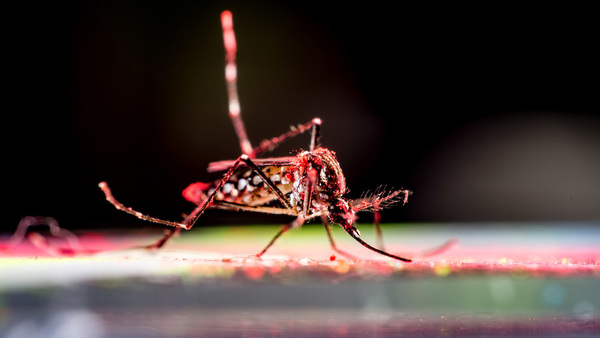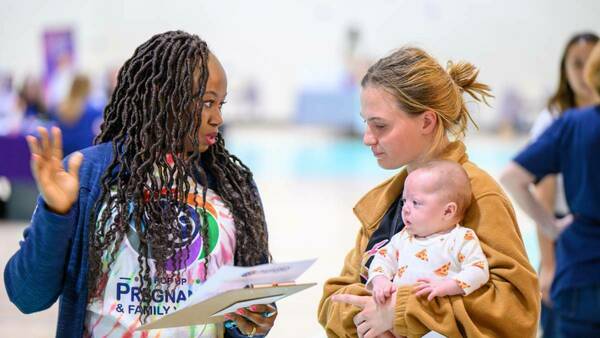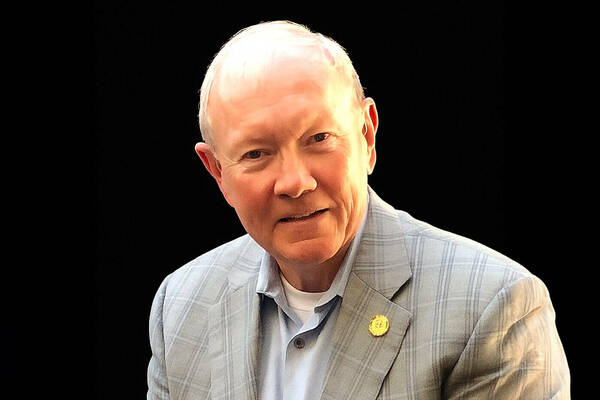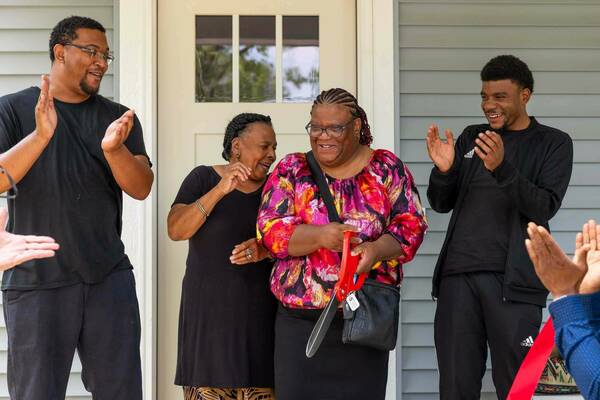Swifties unite after ‘The Great War’ to make a move into politics

Scholars say democracy is in danger if people aren’t paying attention to what matters. And if the public doesn’t care enough about politics, then they may not vote or won’t be as informed when they vote, nor will they be able to fulfill their role in a democratic society.
But if anyone can motivate people to pay attention, it’s Taylor Swift.
During the botched ticket presales for Taylor Swift’s “Eras Tour” in late 2022, the combination of unprecedented demand, arbitrary and unfair purchasing privilege, and Ticketmaster’s website crashes made it nearly impossible for most Swift fans to get tickets. New research from political scientists at the University of Notre Dame found that this pivotal experience forced “Swifties” to pay attention to politics by connecting it to something meaningful and personal in their lives.
By drawing fans’ attention to the issue that mattered most to them — scoring concert tickets — the system failures and ensuing disappointment brought to light the importance of event ticketing politics, namely the lack of market competition, consumer rights and wealth inequality. Those unlucky Swifties who were unable to obtain “Eras” tickets were galvanized to speak out on those issues and hold their elected officials accountable.
‘The story of us’

Notre Dame researchers Erin Rossiter, the Nancy Reeves Dreux Assistant Professor of Political Science, and Jeff Harden, the Andrew J. McKenna Family Professor in the Department of Political Science, tested a political science theory called “issue publics.” This theory suggests that there are small groups within the public sphere that are very passionate about a certain political issue — one that drives their opinion and behavior, keeps them invested for a substantial amount of time and encourages them to engage in the democratic process or participate in political activism.
Through a natural experiment, as documented in their study, “The Development of an Issue Public: Evidence from The Eras Tour,” Rossiter and Harden found that the Swiftie community was one such group. “Swifties are a long-standing, cohesive, passionate and largely apolitical fan base,” they wrote. The fans are very interconnected, especially online, and can coordinate information very well, Rossiter added.
But they are also a socially, economically and politically relevant group that has been credited for an increase in voter registration and a boost in the local economies where “The Eras Tour” concerts were hosted, as well as representing a sought-after constituency in the 2024 presidential campaign, according to the researchers.
“They could become a powerful force in politics,” Rossiter said. “And so, we wanted to test how issue publics form and where they come from, and who joins them and why.”
‘Long story short, it was a bad time’
Tickets for the tour’s first U.S. leg were set to go on sale Nov. 15, 2022. Fans would have access through random selection to purchase tickets; those not selected were waitlisted. When it came time to buy tickets, fans faced an anxiety-inducing and error-ridden process whereby the Ticketmaster website would either crash entirely from the extreme volume, or crash sporadically during mid-purchase.
Ultimately, only about 65 percent of those who attempted to purchase tickets that day found success, according to data collected by Rossiter and Harden.
These presale issues forced Ticketmaster to cancel its public sale planned for Nov. 18, which permanently spiked ticket prices on the secondary market (e.g., StubHub or SeatGeek) — with an average price soaring to $2,183 per ticket by May 2023. This devastated Swifties who could not afford such price tags, leading them to refer to the frustrating process and resulting controversy as “The Great War,” a reference to a track on the 3am Edition of Swift’s 2022 album, “Midnights.”
‘Look what you made me do’
Nine months later, and after the first leg of the “Eras Tour,” Rossiter and Harden fielded a survey of more than 4,000 lucky and unlucky Swift fans from August to September of 2023.

They found that fans who were randomly excluded from being able to purchase primary-market tickets had noticeably different attitudes and behaviors in regard to event ticketing politics than those who successfully bought tickets. “These unlucky fans reported agreement that Ticketmaster’s lack of competition and uneven ticket distribution processes were problematic,” the researchers wrote.
Rossiter and Harden used the survey — which was broadly shared across Swiftie social media channels — to measure fans’ behaviors following their experience. According to the study, the unlucky Swiftie respondents were more likely to contact a government agency to file a complaint. The survey provided a link to the Federal Trade Commission (FTC) should any of the participants wish to lodge a formal consumer complaint.
Harden said that roughly 10 percent of the survey respondents filed with the FTC, meaning approximately 400 of them took the time to go through the questions and complete the online form.
The two researchers concluded that behavior shifts occurred within the fan community that prompted them “to engage more with the politics of the issue,” one way or another.
‘This is me trying’
The researchers also wondered if anyone outside of their study took note of the shifts. “Was anybody listening to these young people — this newly developed group of informed and motivated citizens — who were now becoming more politically engaged about this event ticketing issue?” Harden asked.
The answer was yes. “There were a lot of examples of elected officials being responsive to this issue,” Harden said. Several antitrust bills were introduced in Congress and state legislatures, attorneys general in multiple states launched their own inquiries, and the U.S. Department of Justice announced that it will sue Ticketmaster parent Live Nation, one of the largest ticketing and live events companies in America, for antitrust violations.
“There is a suggested pattern that completes this whole cycle of accountability,” Harden said. “People got motivated about a political issue, went to their government about it, and at least in some form the government actually responded with legislation.”
“We know that people aren’t informed, knowledgeable or invested in every single thing that’s happening, but maybe they can care a lot about one thing, one particular issue that they are passionate about.”
Rossiter said that despite the political polarization and infighting in the U.S. that leaves many people averse to politics, this research gives hope that democracy can still function as it should.
“We know that people aren’t informed, knowledgeable or invested in every single thing that’s happening,” Rossiter said. “But maybe they can care a lot about one thing, one particular issue that they are passionate about.”
Contact: Tracy DeStazio, associate director of media relations, 574-631-9958 or tdestazi@nd.edu
Latest ND NewsWire
- Researchers deconstruct chikungunya outbreaks to improve prediction and vaccine developmentThe symptoms come on quickly — acute fever, followed by debilitating joint pain that can last for months. Though rarely fatal, the chikungunya virus, a mosquito-borne illness, can be particularly severe for high-risk individuals, including newborns and older adults. While the virus is common…
- Eck Institute investigator to strengthen postpartum care for Indiana mothersYenupini Joyce Adams, associate professor of the practice and maternal health lead for the Eck Institute for Global Health at the University of Notre Dame, is partnering with Beacon Health System to pilot a new, first-of-its-kind postpartum care model in the South Bend-Elkhart community.
- Gen. Martin Dempsey to speak at Notre Dame Forum event on ‘Hope, Global Stability and the Role of the United States’Gen. Martin Dempsey, the retired 18th chairman of the Joint Chiefs of Staff, will join University President Rev. Robert A. Dowd, C.S.C., for a fireside chat at 4 p.m. Friday (Oct. 10), as part of the 2025-26 Notre Dame Forum. The discussion, titled “Hope, Global Stability and the Role of the United States,” is part of the exploration of this year’s Notre Dame Forum theme, “Cultivating Hope.” It will take place in Rooms 215/216 of McKenna Hall and will also be livestreamed. The event is free and open to the public.
- University of Notre Dame joins the Global Coalition of Ukrainian StudiesThe University of Notre Dame has joined the Global Coalition of Ukrainian Studies after signing a memorandum of cooperation, formalized Sept. 24, at the Ukrainian Institute of America in New York City. Notre Dame joined four other American institutions that were also publicly welcomed to the coalition at this event: Arizona State University, Columbia University, Manor College and the Shevchenko Scientific Society.
- One year later, Inauguration Build a ‘dream come true’ for Habitat familiesOne year later, work on Inauguration Build 2024 is complete, offering shelter and so much more to five local families.
- Alumni Association and YoungND honor 2025 Domer DozenThe Notre Dame Alumni Association announced its 2025 Domer Dozen cohort, honoring 12 graduates ages 32 and younger for excellence in their contributions in learning, service, faith and work — the core pillars of the association’s mission.













